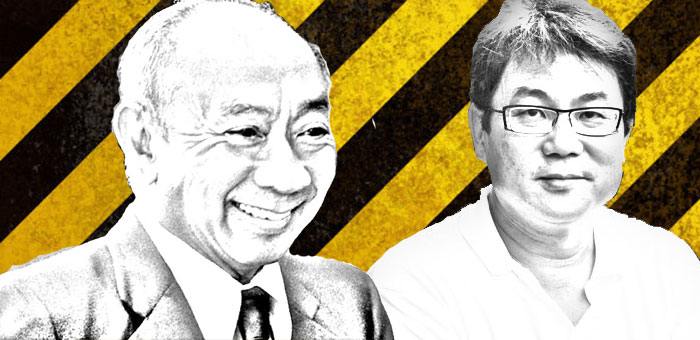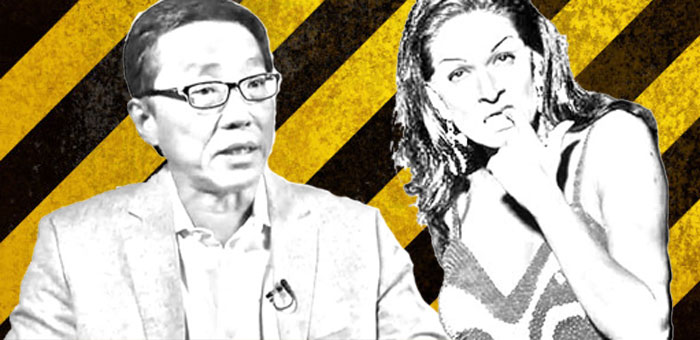Written By Devadas Krishnadas
Public intellectuals have a long and often tortured tradition. They play important roles in the intellectual life of their societies.
Without the public intellectual, there would not be any active intellectual space between the governed and the governors. The public intellectual uses the sharp tools of the mind to cut through disinformation and confused thinking to reveal animating insight and stimulating perspectives.
Yet, those same tools can be perceived to be weapons by those cast in unfavourable light by those insights and perspectives.
It takes not just intellect and conviction but courage to be a public intellectual. The role of the public intellectual bears a closer look to get a better appreciation of their contribution and why so few choose to play the role.
Simplifying massively, there could be said to be three moulds of public intellectuals.
Thought Leader
[quip float="pqright"]The thought leader is an individual of a gifted mind and power of persuasion who shapes the intellectual landscape.[/quip]
First, is the most recognisable of the three moulds — that of the thought leader. Socrates and Plato were such public intellectuals. The thought leader is an individual of a gifted mind and power of persuasion who shapes the intellectual landscape. The distinguishing characteristic of public intellectuals has been that the swords of their arguments were wrought and wielded in the public space.
Thought leaders tend to be charismatic. They enjoy access to elites and as well as to the masses. The commentators Thomas Friedman, Paul Krugman, and Joseph Stiglitz are more modern manifestations of the thought leader.
In the Singapore context, high-profile individuals such as Professor Tommy Koh, former permanent secretary Mr Ngiam Tong Dow, economist Lim Chong Yah and corporate leader Mr Ho Kwon Ping come to mind as thought leaders.
The “Fool”
The second mould is that of the low-profile influencer. Shakespeare’s fool in Twelfth Night represents this lesser recognised profile. In his plays, the Fool is easily the wisest character in the plot, but ironically his appointment is that of the lowest status.
[quip float="pqleft"]the Fool is easily the wisest character in the plot, but ironically his appointment is that of the lowest status[/quip]
Yet, it is the Fool who influences his social betters in their decisions. In today’s context the comedian Jon Stewart would be a great example of the Fool. This type of public intellectual survives on sharp wits and good judgement. They stab their thoughts into our minds after lowering our mental shields with humour or distraction.
Singapore could claim to have our own stock of “Fools” in the guise of personages such as the comedian Kumar and the director Jack Neo — whose satire and comedy devastate the biases hiding beneath the surface.
 Goh Keng Swee (left) and Jack Neo (right)
Goh Keng Swee (left) and Jack Neo (right)
Change Agent
The third mould is that of the change agent. This was the role envisaged by Antonio Gramsci. Gramsci, a Marxist who was imprisoned by the Fascist government of Mussolini spent his time in prison thinking deeply about revolutions and their agents.
[quip float="pqright"]The intellectual, he argued, stood the best chance of achieving -- preferably but not necessarily always -- non-violent change[/quip]
Marx had allocated the agency of revolution to the proletariat as a collective. Lenin had assigned the task of revolution to the revolutionary activist. Gramsci proposed that the intellectual should be the agent of revolution. The intellectual, he argued, stood the best chance of achieving -- preferably but not necessarily always -- non-violent change, by altering the “common sense” values of people, elites and institutions through sustained intellectual leadership. This was the mechanism to throw off what Gramsci described as cultural hegemony.
Noam Chomsky and the late Christopher Hitchens are good examples of revolutionary public intellectuals. Public intellectuals who are Gramscian “thought revolutionaries” need not be Marxists. Instead, today it should refer to thinkers who challenge us to fundamentally reframe and recharge our thinking on policy and politics.
Singapore was fortunate to have Gramscian public intellectuals at the onset of our founding — men such as the late S. Rajaratnam and Dr Goh Keng Swee. They engaged in ideological combat with the Communists.
Having achieved political victory they followed through with successful policy action and implementation. Dr Goh led us to economic success. Rajaratnam pounded the pilings of meaning into our foundation of nationhood, while Dr Goh poured the concrete of material success to seat them firmly.
Since their day, Singapore has not had the benefit of public intellectualism matching their stature and influence. The thinking behind policy-making has retreated behind the walls of the bureaucracy and much of that thinking seemed to have been more about application of principles rather than about being original.
Hopefully, the Our Singapore Conversation process signals a change of this direction.
Community of Public Intellectuals
[quip float="pqleft"]we will need many strong public intellectuals from all three categories[/quip]
For Singapore to succeed in the face of complex challenges we will need many strong public intellectuals from all three categories.
Public intellectuals in isolation can become dominated by their own thoughts. To ensure a high standard of thinking in politics and in policy-making, we need a diverse community of thinkers and actors to challenge one another.
The challenges facing us are too complex and the uncertainties too profound to continue with the model of “behind-closed-doors” thought and decision processes. The unease in the citizenry over identity, culture and the future of nationhood are symptomatic of a country on the edge of a renewal of thinking and beliefs. The time is ripe for a new generation of public intellectuals.
The political leadership and administrative elite of the bureaucracy must be augmented by a cadre of public intellectuals from all three moulds to help achieve a critical mass of vibrant intellectual contest.
Doing so represents our best chance of working out the future of the country on the basis of reason and structured debate. It is only on such a basis that we can achieve the difficult magical act of continuing to ensure stability and yet accomplish renewal in our ideas on governance and politics.
If you like what you read, follow us on Facebook, Instagram, Twitter and Telegram to get the latest updates.
